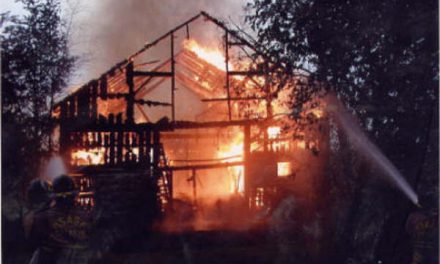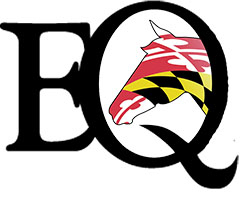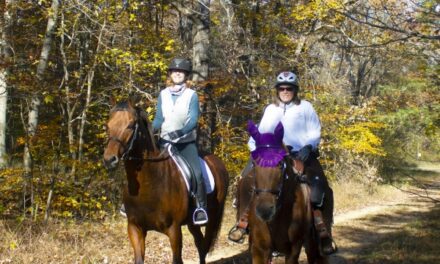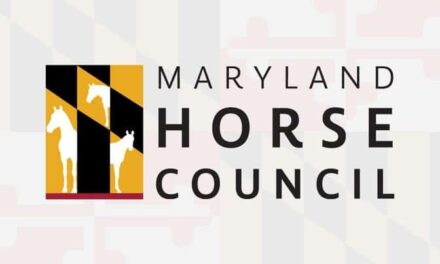by Jane Seigler, MHC Government Relations Committee Co-Chair (first published in March 2023 Equiery)
We are now about half way through the Maryland 2023 General Assembly Legislative Session. As of this writing, over 2,100 bills have been introduced and assigned to their committees of jurisdiction, where they have been or will be scheduled for a public hearing and subsequent votes – all before the session adjourns in 41 days.
Here is an update on some bills the Maryland Horse Council have been active on, or that we are following:
HB 20 – requiring minors to wear approved helmets while riding on public lands, with certain exceptions. We testified in support on February 2; no Committee action yet.
HB 102/SB 279 – Requiring the MDA to publish a fact sheet on the protection of pets in the event of an eviction or any other loss of possession of real property; requiring a landlord to provide information about the fact sheet at the execution of a lease on or after November 1, 2023; requiring a sheriff or any other official to return a pet to a tenant or certain other person or to contact an animal shelter or rescue organization; prohibiting the leaving of a pet on public property; etc. We have proposed an amendment to ensure that “equine livestock” are included in this protection.
HB 188/SB 320 – Adding a member to DNR’s Wildlife Advisory Commission who is an academic researcher with expertise in wildlife biology, wildlife conservation, wildlife management, or ecology; and requiring the membership of the Commission to include representation from the farming, hunting or fishing, wildlife preservation, and passive wildlife recreation communities. We are working to include an amendment that will make it clear that representation by the fox chasing and foot pack groups will still be included.
HB 253/SB 262 – Creating a permit exemption for on-farm composting facilities if the on-farm composting facility uses 40,000 square feet or less. Includes “animal manure and bedding.” We are working to secure an amendment to ensure that certain record keeping requirements will not apply to farmers who just compost their own manure.
HB 389/SB 34 – Establishing the State Ombudsman for Value-Added Agriculture as a position in the Department of Agriculture. We have successfully secured an amendment to the Senate bill to ensure that equine activities are included in the Ombudsman’s jurisdiction. We expect to obtain the same amendment in the House. The Senate version of the bill has passed and moved over to the House.
HB 405/SB 85 – Raising penalties of imprisonment for up to three years and a fine not to exceed $5,000 or both for the abuse or neglect of an animal if the abuse or neglect results in the death or euthanasia of the animal; and authorizing the court, as a condition of sentencing a certain defendant, to prohibit the defendant from owning, possessing, or residing with an animal for a period of time determined by the court. We supported these bills with written testimony.
HB 592/SB 418 – requiring improvements on an actively used farm that support value-added agricultural activities to be assessed at the agricultural use rate. Last year, we worked to ensure that “equine activities” are included in the agricultural use assessment. We support these bills.
HB 659 – Requiring the Department of Transportation to conduct a study on the implications and feasibility of prohibiting vehicles with a semitrailer, pole trailer, or trailer from using a contraflow lane on the Chesapeake Bay Bridge.
HB 678 – Exempting from the sales and use tax the sale of electricity used for agricultural purposes such as raising livestock or poultry, preparing, irrigating, or tending the soil, or planting, maintaining, or transporting seeds or crops.
HB 841 – Allowing lawsuits for damages caused by rodent harborage on real property against an owner of the property; defining “rodent harborage” as a condition that provides sustenance or shelter for rodents, promotes their reproduction and continued existence on a property, creates or contributes to property damage, is injurious to public health and safety, or obstructs the reasonable use of the property.” Excludes “property zoned for agricultural use.”
HB 983/SB 327 – Establishing the Wildlife Conservation, Education, and Outreach Program to provide outreach and foster an interest in outdoor recreation and stewardship, hunting, and wildlife conservation; codifying furbearer permits; permitting migratory waterfowl hunting on Sundays. We submitted testimony opposing the addition of Sundays to the migratory waterfowl provision.
HB 1133 – Establishing the Veterinary Practitioner Student Loan Forgiveness Program for selected participants who practice in rural areas, low–income areas, emergency practices, nonprofit shelters, municipal shelters, and other underserved areas as determined by the secretary, for $20,000 or the amount of the participant’s educational loans, whichever is less; etc.
SB 103 – Creating a state income tax credit for the installation of rooftop solar panels on residential property in the amount of $15,000 or 25% of the installation cost, whichever is lesser. We supported this bill with written testimony.
SB 363 – Altering the authority of the Ocean Downs Race Course to use certain Purse Dedication Account funds generated from video lottery terminal proceeds for operating loss assistance to support a certain minimum number of live racing days at the racecourse.
SB 413 – Establishing the Apprenticeship 2030 Commission to make recommendations to expand access to apprenticeships to ”reduce skill shortages in high-demand occupations” and provide affordable training for career pathways for young people to participate in apprenticeships.
SB 469 – Establishing the Task Force to Study Solar Tax Incentives to study and make recommendations regarding a tax strategy that is more competitive than the State’s current strategy to maximize the installation of rooftop solar panels, to facilitate and promote installation of grid-connected generation of renewable energy, and to meet the State’s renewable energy goals; and requiring the Task Force to report its findings and recommendations to the General Assembly on or before December 15, 2023.
In addition, there are a collection of bills on Sunday hunting. All Senate bills have been scheduled for hearing on March 8. Only a few of the House bills have been scheduled as of this writing – Calvert (HB 449) on February 24, Worcester (HB HB 466 & HB 467) on March 1, and Dorchester (HB 1119) on March 8.
Bills to repeal the 10:30 stop time for Sunday hunting (and to allow all day hunting):
– Calvert (SB 323/HB 449) All species all Sundays, repealing the 10:30 restriction.
– Mid-Shore (SB 777/HB 1118) Repealing 10:30 restriction for all species in Caroline, Dorchester, Talbot, Wicomico; expanding Sunday hunting in Talbot County to every Sunday during deer season; allowing Sunday hunting in Wicomico County on every Sunday in firearm season.
Bills to allow all species, all Sundays
– Wicomico (SB 796/HB 1087) All species, all Sundays on private and public land, and reducing archery safety zone.
– Worcester (SB 824/HB 466) All species, all Sundays on private and public land, and reducing archery safety zon.e
Bills to allow limited deer hunting Sundays
– Prince George’s (SB 155) Each Sunday of the deer hunting season from the first Sunday in October through the second Sunday in January, and reducing archery safety zone.
Waterfowl
– Waterfowl (SB 327/HB 983) Waterfowl every Sunday during migratory waterfowl season.
Turkey
– Worcester (HB 467) Every Sunday of the spring turkey season on private and public land.
Fur-bearers
– Dorchester (HB 1119) “Hunt or trap” fur-bearing mammals every Sunday on private and public land.
By the time you read this, some of these bills will have progressed in the legislative process, and some will have died in committee. If you have any questions about any of these bills, or would like to contact your legislators about them, please contact us at admin@mdhorsecouncil.org!












